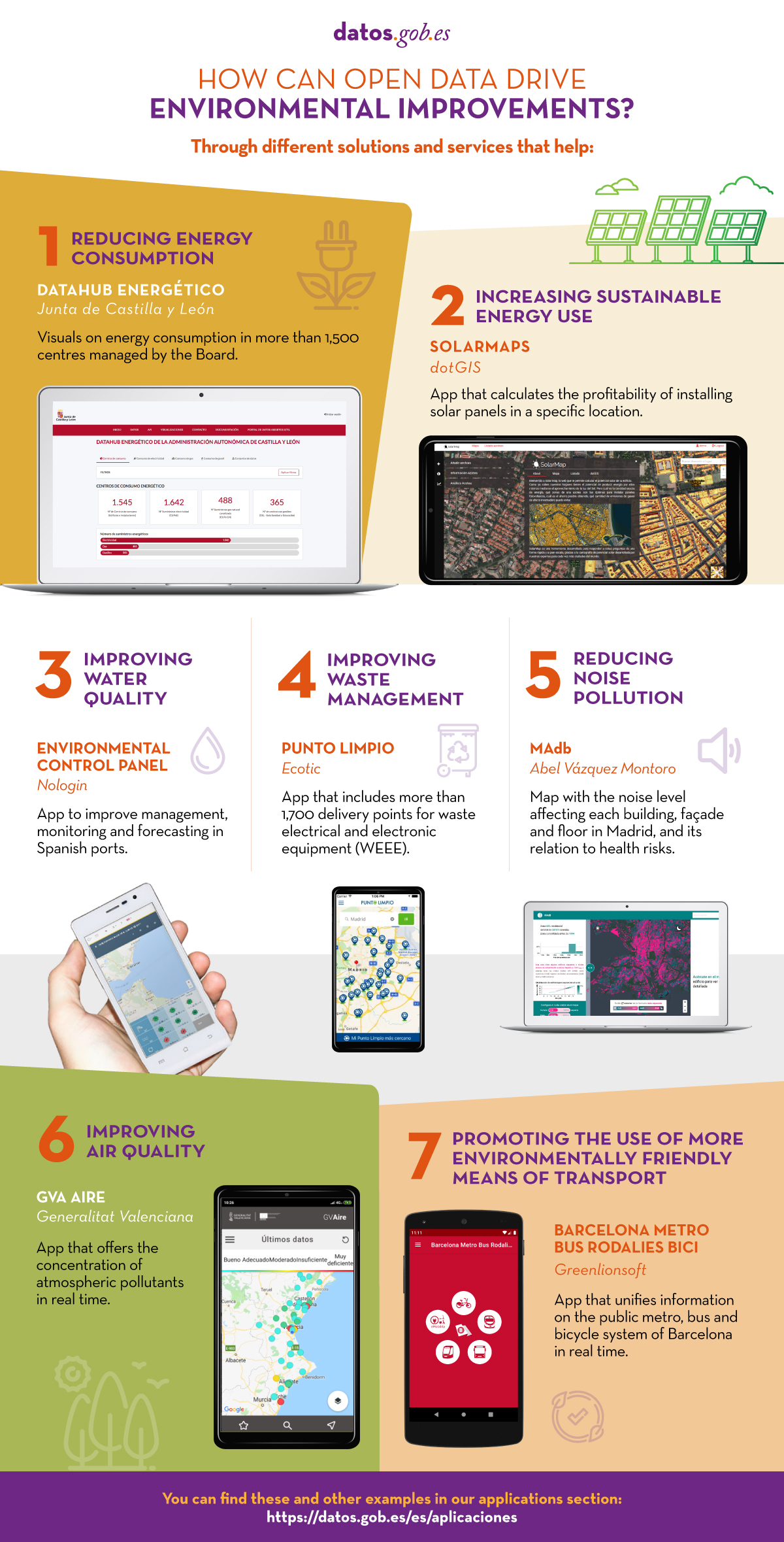Open data use cases to care for the environment and fight climate change
Fecha de la noticia: 30-11-2020

Climate change, air pollution and sea pollution. These are the 3 main environmental problems for Spanish citizens according to the latest Eurobarometer "Attitudes of European citizens towards the Environment", published in March 2020. The survey also highlights that 90% of the Spanish population considers to protect the natural environment important. Citizens want more action to be taken and believe that responsibility should be shared between companies, national governments, the EU and citizens themselves.
As with other sectors, such as education or health, open data can also help us to overcome environmental challenges. On the one hand, it provides us with detailed information to understand the situation and to be able to look for solutions. On the other hand, they serve to implement solutions that help us raise awareness and reduce our environmental footprint.
In its report "The Economic Impact of Open Data Opportunities for value creation in Europe”, ", the European Data Portal highlights that data can "contribute to reducing total energy consumption in Europe, increasing the use of sustainable energy sources, protecting biodiversity and raising awareness of CO2 emissions", as well as generating an economic impact of around 1€ billion. Let's look at some examples:
- Reducing energy consumption. Open data-based applications can serve as a tool to help households and institutions to understand and reduce their energy consumption. In this sense, the Regional Government of Castilla y León has launched an Energy Datahub that provides detailed and visual information on energy consumption in the more than 1,500 centres managed by the Regional Government: educational centres, health centres, administrative offices, hospitals, etc. The scorecard facilitates the disaggregated analysis by type of energy (electricity, gas, diesel) and by geographical location, allowing informed decisions to be made. According to the Board itself, thanks to the energy scorecard they have saved more than 12 million euros in electricity since 2015.
- Increase the use of sustainable energy. The 2018 EU directive on the promotion of the use of energy from renewable sources sets a target for the share of renewable energy in gross final consumption to be 32% by 2030. To help achieve this target, publicly available data on urban planning, use of public services or weather conditions can be cross-checked to create solutions that help make housing more sustainable. One example is Solarmap, which allows the profitability of a solar panel installation to be calculated for a specific location.
- Improving biodiversity: Changes in ecosystems can lead to mass extinctions of species and the limitation of available natural resources, which can affect not only our economy but also our own way of life. In this sense, open data serves as a basis for solutions that, for example, help us monitor various parameters of port waters (such as Environmental Control Panel), improve waste management (Punto limpio) or publicise noise pollution (MAdb).
- Raise awareness of air pollution and the reduction of CO2 emissions. Although, as we saw at the beginning of this article, we Spaniards are very aware of climate change, however, if we look at the individual habits of citizens, we see that there is still much to be done. Only 38% try to reduce their energy consumption, 28% choose less polluting forms of transport, and 36% buy local products. It is therefore necessary to continue raising awareness, for example through indicators of air quality in cities such as GV Aire. There is also a need for applications that promote the use of more efficient means of transport, such as bicycles or public transport (Barcelona metro bus rodalies bici).
You can find more examples in the applications section of datos.gob.es and in our environment section.












